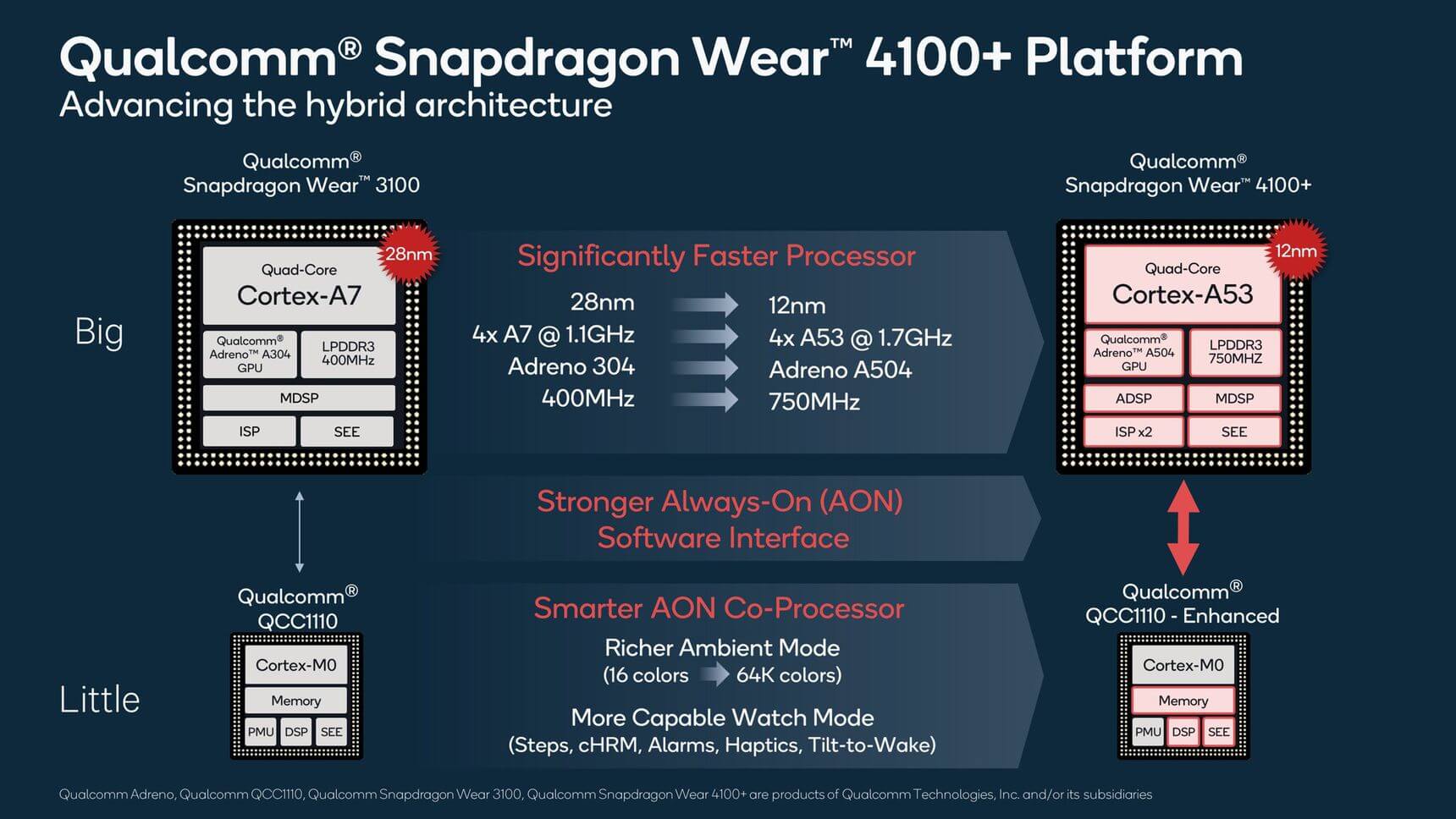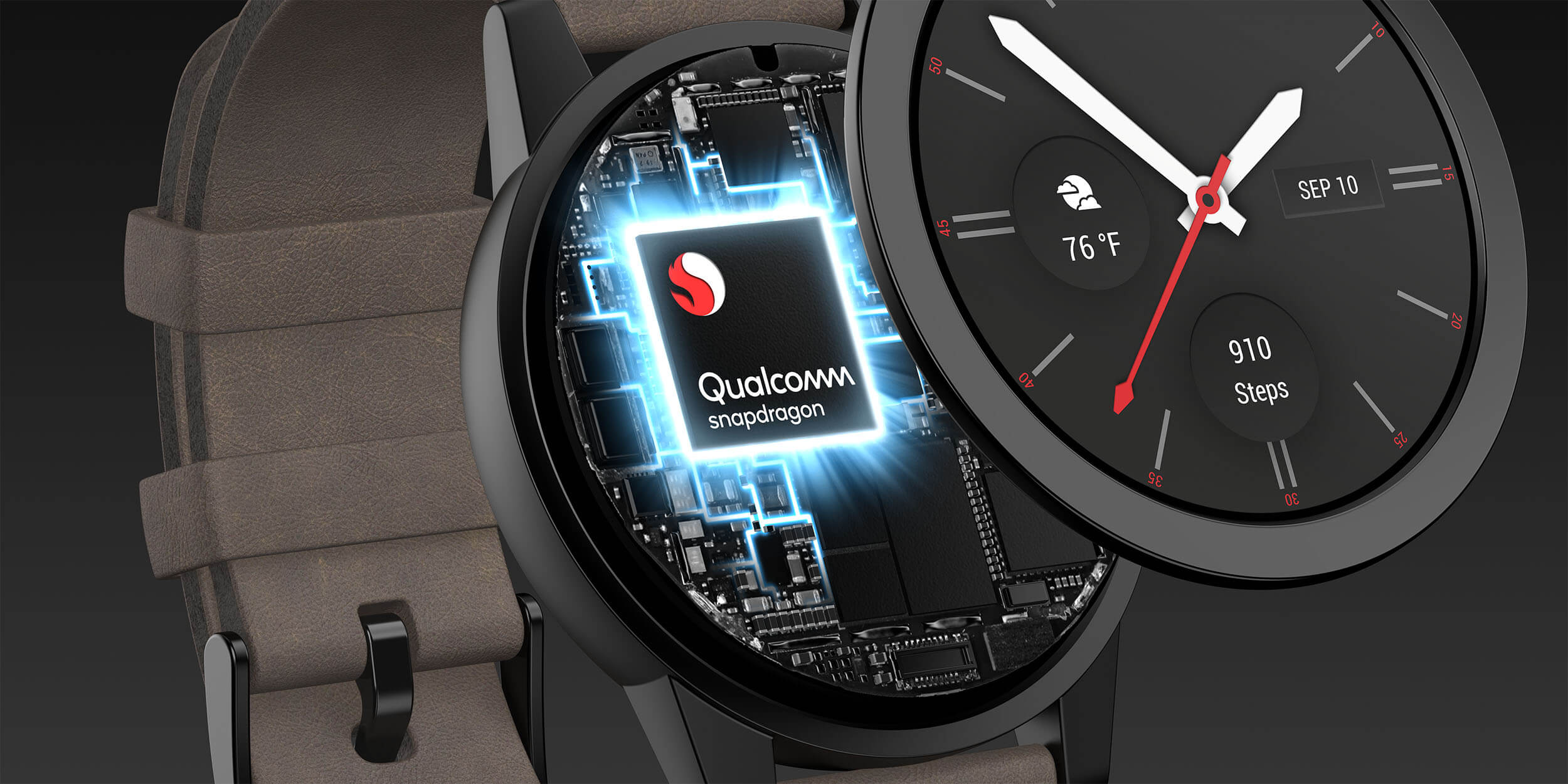In context: Wear OS watches (formerly Android Wear) have had to fight an uphill battle ever since the first one landed in 2014. For a while, they seemed like the next big thing after the smartphone, but they never quite captured the same level of interest due to slow hardware and limited software. Google has improved the software, and now it's Qualcomm's turn to try and rejuvenate the market with better hardware platforms.

Back in 2018, Qualcomm introduced the Snapdragon Wear 3100 platform for smartwatches with a 'big-small-tiny' architecture that was supposed to deliver great performance while sipping little power from the small batteries that you can fit inside the typical wearable. However, that wasn't enough to breathe more life into Android Wear smartwatches.
Google moved to rebrand the ecosystem as Wear OS and redesign it, so that it'd feel like it finally belonged on your wrist. The search giant also acquired Fitbit to bolster the hardware that runs Wear OS, but arguably what many smartwatches needed was a beefier SoC.
Qualcomm finally delivered two new smartwatch processors today, the Snapdragon Wear 4100 and the Snapdragon Wear 4100+, which is the first significant upgrade in years, given that both the Wear 3100 and Wear 2100 were almost the same in terms of performance. The new chips are based on a 12nm process node, while the older generations used a 28 nm process, leading to efficiency gains and better performance.

Qualcomm's newest SoCs offer a richer ambient mode that can support sleep tracking, heart rate tracking, haptic feedback, live complications with more colors, alarms, and adaptive brightness. That's because the company realized that since most smartwatches spend 95 percent of the time in ambient mode, that should be one of the main areas that needed improvement.
Inside the new Wear 4100+ you'll find a quad core CPU based on the ARM Cortex A53 that can run up to 1.7 GHz and offers 85 percent higher performance when compared to the 3100 platform, with RAM that is also 85 percent faster. The new Adreno A504 GPU is 2.5 times faster that the A304 found in the previous generation, and the image signal processor is two times faster and supports 16 megapixel sensors.
The Snapdragon Wear 4100 is the same chip but without the QCC1110 co-processor for always-on functionality. Qualcomm says both new SoCs should enable 25 percent more battery life, which is less impressive than the performance boost but still a welcome upgrade.
The new SoCs are expected in upcoming smartwatches from Fossil, Mobvoi, and Xiaotiancai, the first of which will arrive in July. However, even as the smartwatch market has grown thanks to more models offering health monitoring features, an ever larger percentage of shipments belong to Apple and Samsung. One has to wonder if Qualcomm's new chips can do anything to reverse that trend.